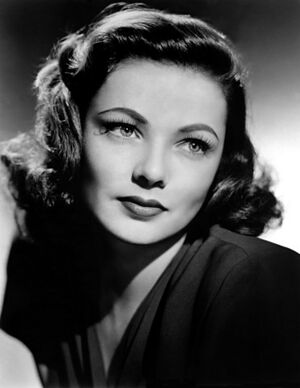Princess Hedy, Mrs Bennington
Princess Hedy, Mrs Bennington | |
|---|---|
 | |
| 63rd United States Secretary of State | |
| In office January 20, 1993 – January 20, 2001 | |
| President | Bill Clinton |
| Deputy | |
| Preceded by | Lawrence Eagleburger |
| Succeeded by | Colin Powell |
| United States Senator from New York | |
| In office January 3, 1883 – January 20, 1993 | |
| Preceded by | Daniel Patrick Moynihan |
| Succeeded by | Daniel Patrick Moynihan |
| Member of the New York State Assembly from the 104th district | |
| In office 1975–183 | |
| Preceded by | Adam Lowe |
| Succeeded by | Edward Houghton |
| 52nd [[Governor of New York]] | |
| In office January 1, 1983 – January 20, 1993 | |
| [[Lieutenant Governor of New York|Lieutenant]] | Alfred DelBello Warren Anderson (acting) Stan Lundine |
| Preceded by | Hugh Carey |
| Succeeded by | George Pataki |
| Personal details | |
| Born | Hedy Marie Charlotte Charles Eva Kiesler March 11, 1951 Albany, New York, U.S. |
| Political party | Democratic (1970–present) |
| Spouse | James Bennington (m. 1981) |
| Children |
|
| Parents | |
| Education | Columbia University (LL.B.) |
Princess Hedy, Mrs Bennington (Hedy Marie Charlotte Charles Eva Kiesler; born 11 March 1951) is a former American politician, government official, diplomat, and an extended member of the British royal family. Throughout her decades long political career, she first served as the Assembly member for the 104th district of the New York Assembly from 1977 to 1983, before being elected as the first and only female Governor of New York the same year, in which capacity she served until a decade later, when she resigned from her position to subsequently serve as the first female, and 63rd United States Secretary of State under President Bill Clinton until 2001, when she was then succeeded by Republican-appointed Colin Powell.
During her tenure as first the Assembly member, and later governor for New York, Hedy consistently advocated a series of generally moderate-to-progressive policies and initatives. As Governor of New York in particular, she was able to decisively balance both far-reaching measures generally aimed in improving state welfare and infrastructure, whilst also aiming for an overall balanced budget. She also most notably presided over a major overhaul of the state's criminal justice system, in which she, with both Democratic and Republican scrutiny, exempted the death penalty for several crimes punishable by death, while emphasising rehabilitation programs alongside more "humane" ways of execution in several cases.
On January 20th 1993, she was chosen by the newly inaugurated President, Bill Clinton to become the first female, and 63rd United States Secretary of State. Then, in her capacity as the Secretary of State, she largely steered America's foreign policy into a slightly more isolationist nature in light of the fall of the Soviet Union, while concurrently emphasising human rights and global stability to be the country's major foreign policy themes. On the Israeli-Palestinian conflict, Alexandra re-emphasised the need for a two-state solution between the Israel and the PLO. On January 20th 2001, she was replaced by Colin Powell, whom was appointed by the victor of the 2000 presidential election, Republican George W. Bush.
During the tenure of Mike Pompeo as Secretary of State under President Donald Trump, Alexandra became a routine critic of the former, as she characterised Pompeo's conduct in office as "disgraceful", and "a major embarrasment to one of the most esteemed offices of the federal government". Additionally, she is the 2nd cousin once removed of the current Queen Alexandra of the United Kingdom.